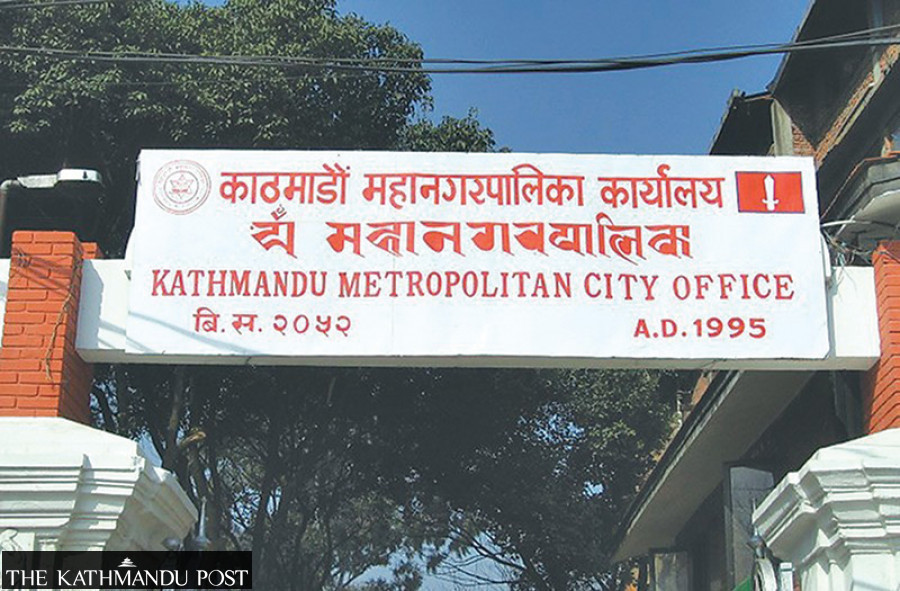Kathmandu
KMC catches litterbugs from open spaces and riversides
Officials have deployed an eight-member staff until 11pm to book litterbugs. City plans to re-operate the bio-plant at Teku.
Post Report
The Kathmandu Metropolitan City (KMC) has intensified its action against the litterbugs in the City.
On Wednesday night, the City police confiscated a Tata van with the registration Ba 4Cha 334 in Balkhu, while it was about to dump garbage on the banks of Bagmati river.
The van was loaded with garbage packed in sacks, according to officials.
“We charged them Rs15,000,” said Rabin Man Shrestha, chief of the Environment Department of the KMC.
“In the past two months, we have raised Rs180,500 from litterbugs, mainly during the night time,” said Shrestha, who was appointed as the new chief of the department, two months ago.
Shrestha said until now, five people have been nabbed for dumping garbage in the open spaces, mostly at night, on the Bagmati's banks.
Officials say most people prefer to throw garbage in the open on the riverbanks just to avoid the charges they need to pay the garbage collectors, and this has caused pollution within the City.
The Waste Management Act-2068 (2011) states that those found guilty of disposing garbage in prohibited zones face a six-month jail term or Rs5,000 to Rs100,000 in fines or both, according to the nature of offence.
At present, the environment division is deploying eight City police personnel every night until 11pm to keep an eye on people who throw garbage on the roadsides.
City officials blame Nepal Electricity Authority and internet service providers for polluting the City with cables.
“In Putalisadak and other places, there are loose cables lying about, and that's creating a problem. There are also chances of a fire breaking out,” said Shrestha.
Meanwhile, the department has announced its plans to re-operate the bioplant in Teku that has not been operational since 2017.
The City had established the plant following a long test production to generate energy from biodegradable waste. The project had a joint investment of Rs18.2 million from the KMC and the European Union.
As an alternative to converting organic waste into electricity, the KMC had aimed to produce 14KW electricity, 300 kgs of organic fertiliser and 13,500 litres of water on a daily basis processing three tonnes of organic waste.
“We have repaired internal machines, and by mid-April, the biogas plant will come into operation fully,” Shrestha added.




 14.24°C Kathmandu
14.24°C Kathmandu










